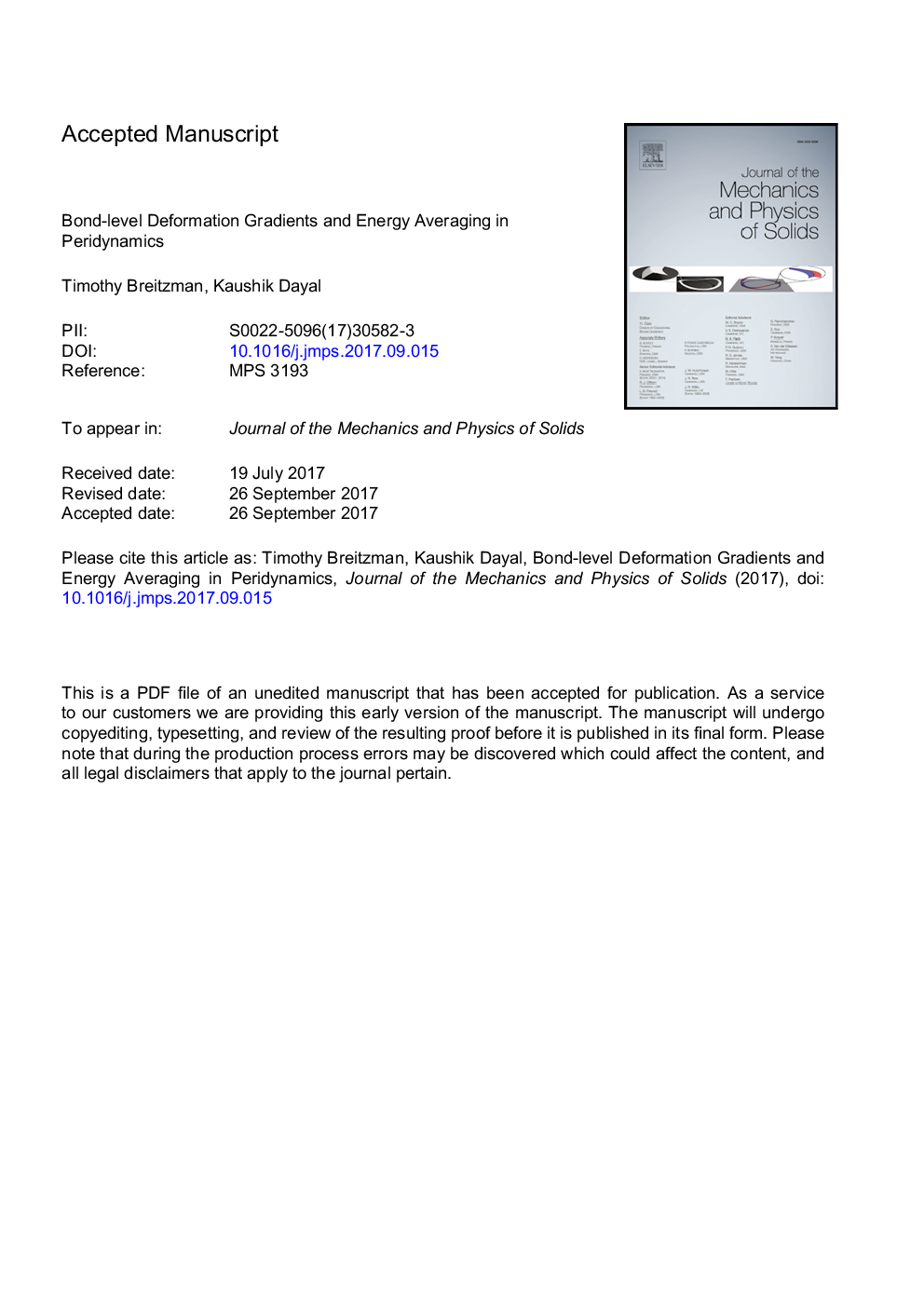| Article ID | Journal | Published Year | Pages | File Type |
|---|---|---|---|---|
| 7177596 | Journal of the Mechanics and Physics of Solids | 2018 | 19 Pages |
Abstract
Peridynamic models that aim to incorporate a given classical local continuum stress-deformation response function typically start with a nonlocal averaged analog to the deformation gradient as input to the given local stress-deformation response function. This approach has been observed to allow unphysical deformations such as interpenetration and cause loss of linear stability. This paper describes an approach to deal with this shortcoming. The strategy is based on (1) defining a bond-level analog to the deformation gradient tensor - in contrast to the usual vector deformation measure in peridynamics - that captures both the average deformation in the neighborhood of the bond as well as the deviation of the bond stretch from this average deformation, and (2) using this bond-level deformation gradient in the classical local strain energy response to obtain the energy of each bond. Compared to the standard approach that applies the energy to the averaged deformation gradient, this approach instead averages the energy applied to the bond-level deformation gradient.
Related Topics
Physical Sciences and Engineering
Engineering
Mechanical Engineering
Authors
Timothy Breitzman, Kaushik Dayal,
